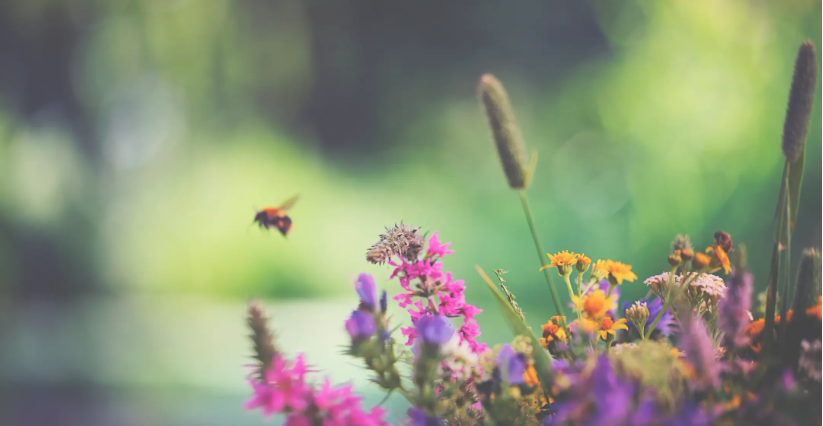Coronavirus Pandemic Has Given a Chance For The Best Summer in Years to Bees And Wildflowers

The whole planet has been hit hard by the coronavirus pandemic. Many people around the world are staying inside, practicing social distancing, and doing their best to help slow the spread of the coronavirus.
While humans finding this quarantine difficult, other species cannot say that. Many species are actually thriving in the absence of humans.
The Independent reported, rare wildflowers and the wildlife dependent upon them for survival – such as bees, bats, and butterflies – could have their best summer for years as a result of the UK’s coronavirus lockdown, according to a leading conservation charity.
Lazy lawn keeping could be the reason for the flourishing of other species.
The not-for-profit group Plantlife has been urging people to ease up on their obsession with landscaping and lawn grooming in order to give bees their proper space to pollinate. But now, according to BBC News, the coronavirus may be the most effective advocate for lazy lawn keeping. With millions of people on lockdown, the grass on both private and public lands is growing scruffier.
Wildflowers are also benefitting from this halt in lawn grooming. Plantlife wrote, “There’s hope that reduced cutting frequencies might be a silver lining for verge wildflowers, giving once-familiar flowers, such as white campion, betony, greater knapweed and harebell, the chance to grow, flower and set seed.”
More wildflowers means more bees to pollinate.
The more wildflowers left from not mowing, the more bees will pollinate. In the U.K., grass-trimming on public lands has fallen by the wayside due to coronavirus. The organization claims the result will likely be a boom in bright, colorful curbside meadows over the summer, and those wildflowers will draw bees, butterflies, birds, and bats.



